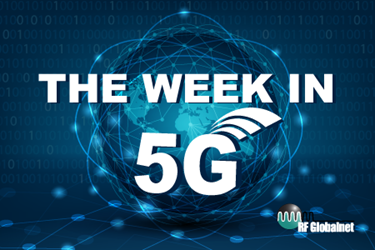The Week in 5G: 2/23/2021 — Spectrum Allocation Woes in Malaysia and Spain; Dish + Amazon Deal Pending?
By Ed Biller

Malaysia’s Communications and Multimedia Minister, Saifuddin Abdullah, announced in a recent interview that the Malaysian government will build 5G infrastructure itself, versus depending on private telecom carriers, reports Bloomberg. The report states companies like Telekom Malaysia Bhd. and Huawei Technologies Co. are likely to contribute significantly to the buildout, which aims to empower a network for users by the end of the year.
Malaysia is set to invest $3.7B in the effort over the next decade, utilizing a “special purpose vehicle” to own the spectrum and manage the network. The country’s initial plan for spectrum allocation was to allocate airwaves to carriers chosen via a tender process, but that plan was scrapped last June after Saifuddin abruptly announced the award of 700 MHz to five operators with no explanation, a move he rescinded quickly.
In Spain, Jean-François Fallacher, head of the French telecoms firm Orange Spain, has suggested the Spanish government reduce the € 1.17B ($1.42B) price for 5G frequencies to encourage investment, citing an Ernst & Young report that states the country levies some of highest taxes on operators in Europe. Reuters reports Fallacher sees the high taxation and spectrum fees as undermining 5G investment in Spain, though he claims Roberto Sánchez, the Secretary of State for Telecommunications, “suggested (the government) may review that price.”
In the UAE, Ericsson has announced it will deploy its 5G radio access network (RAN) products and solutions “as part of a major network expansion and modernization.” The goal is to complete deployment by the end of this year.
In the U.S., the Department of Defense has tapped Federated Wireless to deploy a Citizens Broadband Radio Service (CBRS)-enabled private 5G wireless network for a trial “designed to modernize the Marine Corps Logistics Command warehouse operations in Albany, Ga.” Several other U.S. partners also will contribute to the multi-year initiative, aimed at improving “receipt, storage, issuance, inventory control and auditability of material and supplies that directly support Marine Corps global operations.”
In the larger U.S. Market, rumors abound that Dish Network wants to partner with Amazon to build out a $10B-$20B 5G network — one whose performance and pricing will crush competitors like Verizon, T-Mobile, and AT&T. The most recent reports stem from a Seeking Alpha interview with Boost Mobile America founder Peter Adderton, who stated Amazon may use the network to “offer its own mobile service” (Dish acquired Boost Mobile in 2020 when regulators conditioned approval of Sprint/T-Mobile merger on its sale).
Staying in the U.S. market, Forbes notes “98.8% of urban dwellers have access to high-speed internet (HIS). Only 82.7% of rural dwellers can say the same.” Open RAN and virtual RAN (vRAN) are discussed as economically viable approaches to address this issue, as well as keep the U.S. economy healthy during pandemic-related work conditions (e.g., work from home).
Of course, ubiquitous 5G coverage means more security risk for users, and the U.S. Cybersecurity and Infrastructure Security Agency (CISA) — after releasing a white paper discussing its 5G strategy in November 2020 — continues to track and address new threats. While software vulnerabilities currently comprise the most common threat, CISA also aims to educate Americans and international partners about risks to the 5G supply chain and ICT supply chain.
Finally, 5G security also resides at the heart of many network rollout discussions across Europe. ZDNet reports geopolitical alliances — such as the US-led “Clean Network” 5G security initiative — complicate 5G partnerships for nations, effectively forcing countries to pick a side between the U.S. and China in their ongoing Huawei / ZTE spat.
